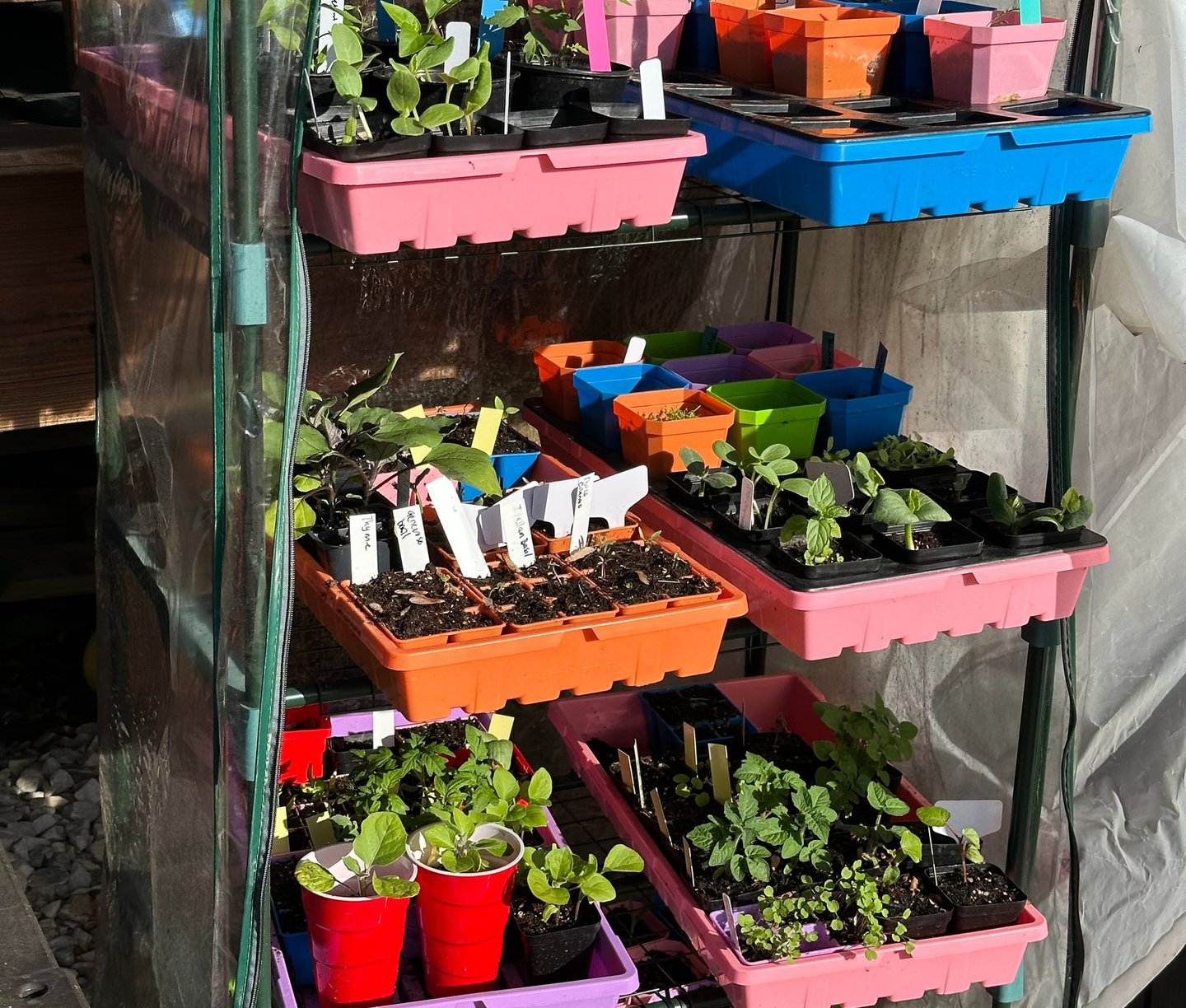The Ultimate Guide to Fertilizing Your Summer Garden
5/20/20255 min read


The Importance of Fertilizing Your Summer Garden
Fertilizing your summer garden is a critical aspect of maintaining healthy and productive plant growth. During the warmer months, plants experience heightened metabolic activities, necessitating a sufficient supply of nutrients to support their growth, development, and overall vigor. Nutrient absorption occurs through plant roots, which take up essential macronutrients, such as nitrogen, phosphorus, and potassium, as well as various micronutrients critical for physiological functions.
Nitrogen plays a vital role in promoting leafy growth and is often a primary focus for green crops, while phosphorus enhances root development and flowering, contributing to the formation of fruits. Potassium is essential for overall plant health, aiding in disease resistance and water regulation. Additionally, micronutrients such as iron, manganese, and zinc, although required in smaller quantities, are indispensable for various biochemical processes within plants. A deficiency in these nutrients can lead to stunted growth, poor flowering, and suboptimal fruit production.
Proper fertilization not only enhances plant growth and flowering but significantly impacts the quantity and quality of produce in your summer garden. When plants receive adequate nutrition, they are more resilient to stress factors such as drought, pests, and diseases, ultimately leading to a more sustainable garden ecosystem. Timing and frequency of fertilization are equally important; gardeners must be aware of specific plant needs and growth stages. Early-season fertilization can boost initial growth, while mid-season applications can sustain health during peak growing periods.
Therefore, understanding the nutrient requirements and the role of different fertilizers is essential for gardeners seeking to optimize their summer garden's productivity. As we delve into specific methods of fertilization, this foundational knowledge will aid in selecting the best approach for your unique gardening needs.
Utilizing Organic Compost for Your Garden
Organic compost serves as an excellent fertilization method for summer gardens. This natural material is derived from decomposed organic matter, such as kitchen scraps, yard waste, and even certain paper products. By integrating organic compost into your gardening routine, you significantly enhance soil health and structure, which is vital for robust plant growth during the warmer months.
One effective way to apply compost is through top-dressing. This method involves evenly spreading a layer of compost over the top of the soil surrounding your plants once a month. This not only adds essential nutrients but also fosters microbial activity, which is crucial for breaking down nutrients in the soil. Additionally, you might consider creating compost tea, a nutrient-rich liquid made by steeping compost in water. Once strained, this tea can be applied directly to plant foliage or around the base as a liquid fertilizer, promoting healthier plants and improved growth rates.
The composting process itself is relatively simple. Gather organic materials that can include fruit and vegetable scraps, coffee grounds, grass clippings, and leaves. Maintain a balance of green materials, which are high in nitrogen, and brown materials, which provide carbon. This balance ensures a healthy compost mix that heats up as microorganisms break down the materials. Over time, ideally from three to six months, you will produce rich, dark compost ready for use in your garden.
An application of organic compost not only enriches soil with nutrients and aids moisture retention but also enhances the availability of essential elements for plant growth. Improved soil structure allows for better drainage and root development, ensuring that your summer garden thrives throughout the season. Embracing organic composting is, therefore, a sustainable and beneficial gardening practice that pays dividends in the health of your garden.
Liquid Fertilizers: Fish Emulsion and Seaweed Extract
Liquid fertilizers, such as fish emulsion and seaweed extract, have gained popularity among gardeners for their gentle and effective nutrient delivery systems. These organic fertilizers are particularly beneficial for summer gardens, as they help improve soil health and plant growth without the risk of over-fertilizing that often accompanies synthetic options. Both fish emulsion and seaweed extract contain essential nutrients that are readily available for plants, making them an excellent choice for sustaining vigorous growth during the summer months.
Fish emulsion, derived from the byproducts of fish processing, is rich in nitrogen, phosphorus, and potassium, the key macronutrients necessary for plant development. It also contains trace minerals and beneficial microorganisms that support soil health. When applying fish emulsion, gardeners should dilute it with water according to the manufacturer's instructions, typically around one part emulsion to five parts water. This mixture can be applied to the soil or as a foliar spray. For best results, it is recommended to nourish plants every two to three weeks during the growing season, ensuring that they receive adequate nutrients without the danger of fertilizer burn.
On the other hand, seaweed extract is derived from various species of seaweed and is rich in micronutrients and growth hormones that promote healthy root development and overall plant vigor. Its high potassium content aids in improving drought resistance and disease tolerance in plants. Similar to fish emulsion, seaweed extract should be diluted before application, and it can also be applied as a soil drench or foliar feed. The application frequency remains the same, with treatments every two to three weeks, ensuring that plants continually benefit from these vital nutrients.
In essence, incorporating liquid fertilizers like fish emulsion and seaweed extract into your summer gardening routine is a strategy that promotes healthy plant development while maintaining a balance in soil nutrients. These organic fertilizers provide an eco-friendly alternative to conventional options, catering to a sustainable gardening approach.
Granular Slow-Release Fertilizers: A Consistent Feeding Strategy
Granular slow-release fertilizers have gained significant popularity among gardeners for their efficiency in providing a steady supply of nutrients to plants over an extended period. Products such as Espoma and Dr. Earth are prime examples of organic granular fertilizers specifically designed to nourish plants throughout the growing season. These fertilizers are formulated to dissolve gradually, allowing for a consistent feeding strategy that aligns with the nutrient uptake requirements of various plants.
The primary mechanism behind slow-release fertilizers involves a coating that regulates the rate at which nutrients are released into the soil. This controlled release is vital, as it ensures that plants receive nutrients at a pace that matches their growth cycles. Applying these fertilizers at the beginning of the growing season prepares your garden for optimal growth, as nutrients will be accessible when plants are most in need. Typically, granular slow-release fertilizers should be applied around the time of planting and then reapplied after several weeks to maintain nutrient levels.
To achieve the best results with granular fertilizers, it is essential to follow proper application methods. Begin by spreading the fertilizer evenly around the base of the plant, ensuring that it does not come into direct contact with the stems or leaves, as this can lead to burn. Watering after application aids in activating the granules, allowing them to break down and integrate into the soil.
However, gardeners should exercise caution to avoid common pitfalls associated with fertilizing, particularly with fruiting plants such as tomatoes and peppers. Over-fertilizing can lead to excessive leaf growth at the expense of fruit development. To promote optimal growth and fruit production, always adhere to the recommended application rates and closely monitor plant health following fertilization. By employing granular slow-release fertilizers judiciously, gardeners can effectively enhance the success of their summer gardens.
Grow
Cultivating wellness through gardening and sustainability.
Email Us:
© 2025. Healing IN Garden & Farm LLC. All rights reserved.
Created by askdolo.com
